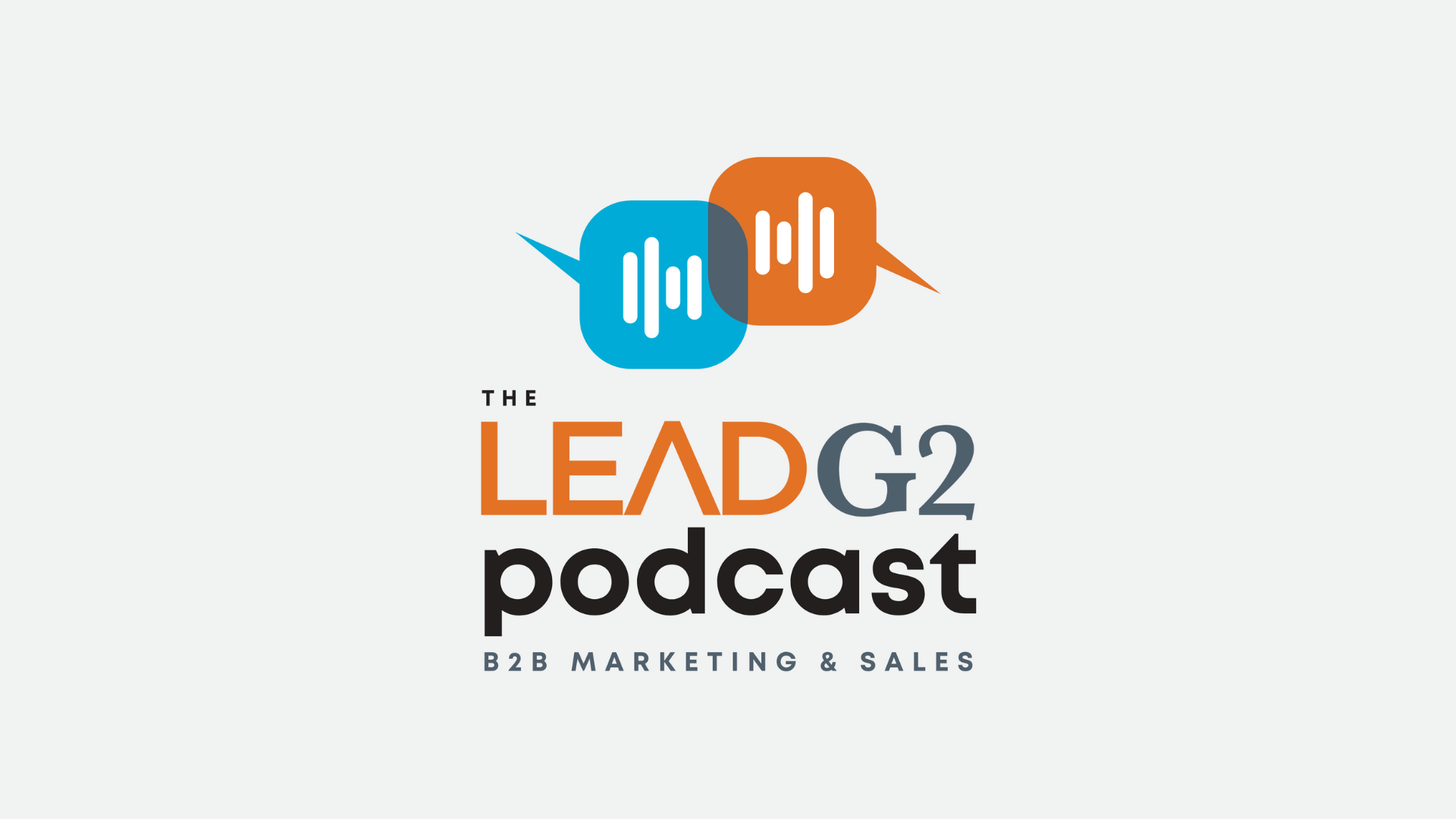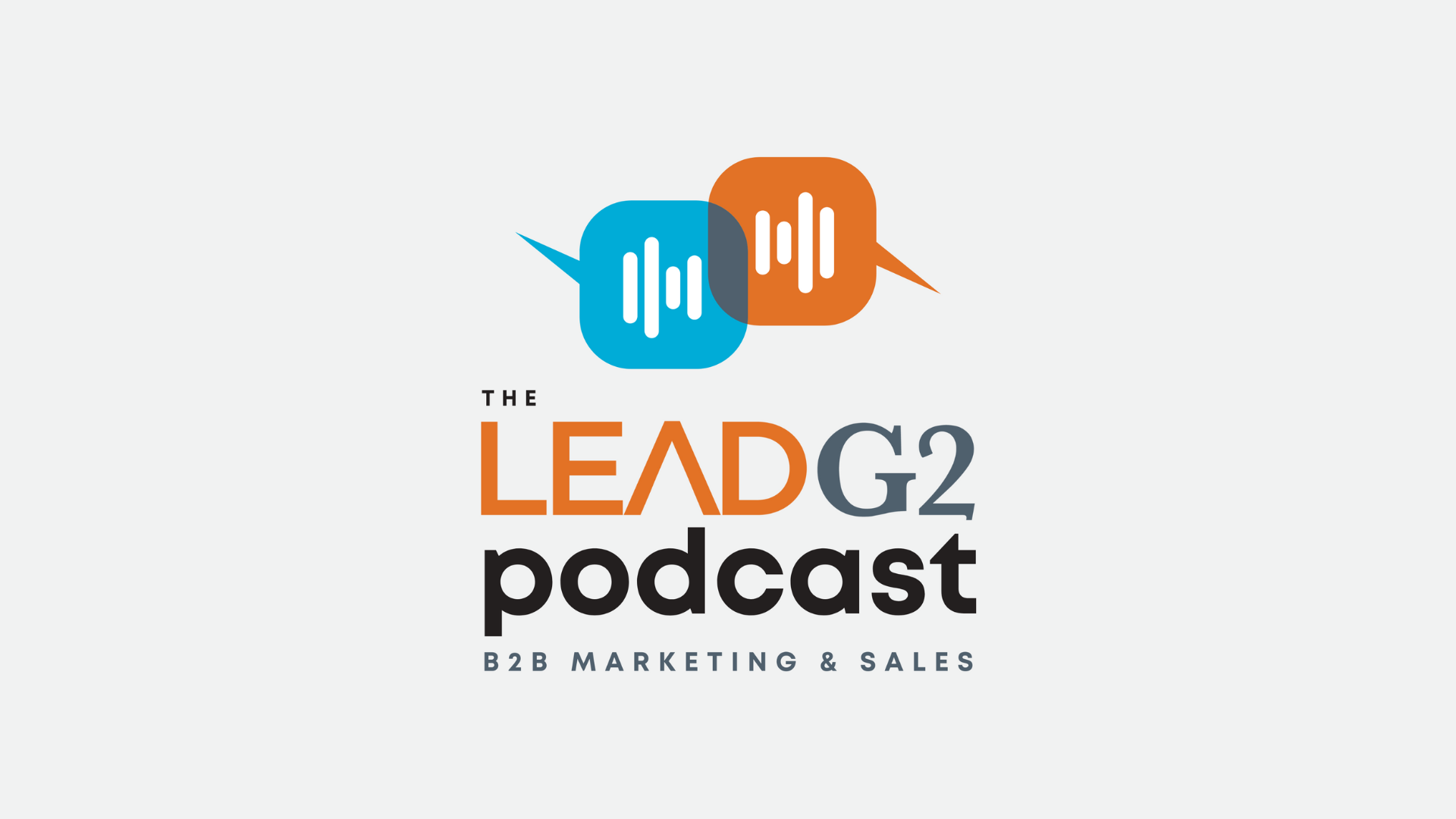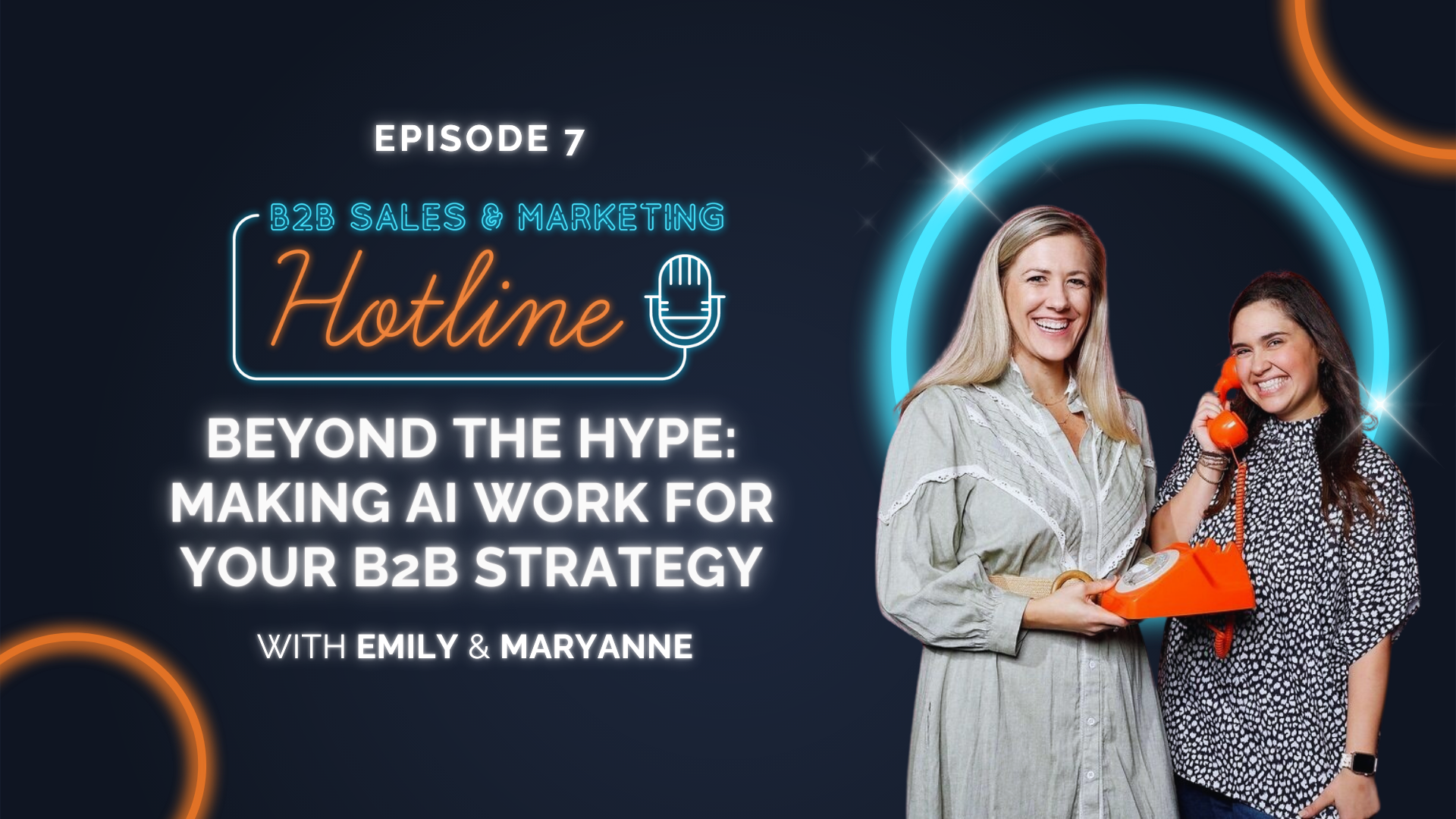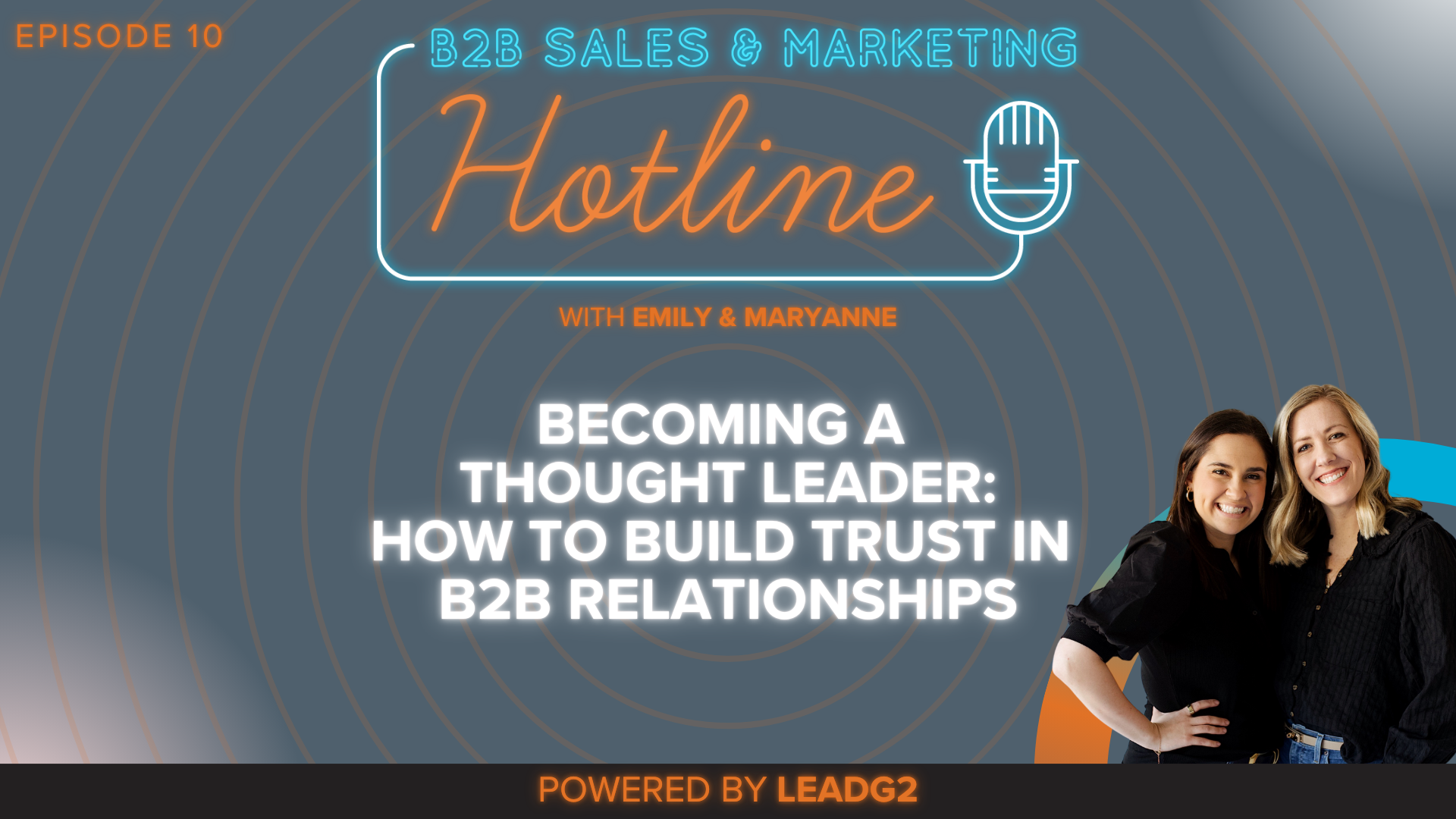3 min read
Developing a Strategic Gameplan for Your B2B Marketing Efforts with John Lenker
 Brent Tripp
:
March 21, 2024
Brent Tripp
:
March 21, 2024


In this episode, we’re discussing the importance of hashing out a strategic gameplan for your B2B marketing efforts.
We ask questions like: What are the key elements that should be included in a strategic marketing gameplan? What is a market opportunity analysis, and why is it so important? And how do you strike the right balance between personalized communication and scalable approaches when it comes to B2B spaces?
Joining Dani to answer those questions and more is John Lenker, Founder/CVO at Lenker. John shares a ton of great insights, like:
-
How there must be a truly compelling reason for people to put their guard down and buy into the solutions you are trying to sell.
-
Why follow-through and the overall customer experience are often as big a part of the sale as what it is you’re actually selling.
-
And, finally, why it’s important to recognize and understand what you can truly bring to the table in a business relationship.
Why Developing a Strategic Marketing Gameplan is So Important
“So, when you and I talked before,” Dani says. “We understood the importance of having that strategic gameplan before making any big marketing decisions.
“What do you see as some of the very core, essential elements that should be included when someone's building out their marketing plan?”
“Sure,” John says. “I think that the trap that we fall into is, a lot of times, we get into whatever business we’re in because we have some talent or technical background. Maybe we’re engineers, and we designed some things, and we think, ‘I’d be really good at that. I can go out and succeed in that.’
“Then we get out there, and we’re like, ‘Oh my gosh, I really didn’t think this through. Things are not what I expected.’
“And, often, in business, it’s like investing in the stock market, right? An average person on the street may say, ‘You should buy Apple stock right now. It's a really good investment.’ So, you invest and don’t see the gains. The reason is that you’re not a professional trader, and by the time you hear about it on TV or wherever, it’s kind of too late. You missed the wave.
“You didn’t do a proper analysis of what the opportunity represented for you and what you could ultimately get out of it from a business standpoint.
“Similarly, in our businesses, we often fail to do a proper market opportunity analysis. And that’s one thing that my company, Lenker...works really hard at. We help clients get an honest assessment of the competitive landscape in any given market. We see how you currently stack up against the competition in the marketplace and help understand:
-
What is your reason for being?
-
What sets you apart?
-
Why should people care about you?
People are naturally trying to keep you out, and there has to be a really compelling reason for people to put their guard down and allow you to influence them.
Personalized Communication vs. Scalability in B2B Spaces
“A lot of our listeners are in the B2B space,” Dani says. “So, I’d love to hear your opinion on finding that ‘perfect balance’ between personalized communication while also being scalable.”
“Sure,” John says. “And we can connect it back to the market opportunity analysis. [So, let’s say there’s] a company that makes cabinets in the construction industry.
Ostensibly, you’d think I’m in the business of selling cabinets to general contractors who are going out and putting these cabinets in buildings and houses.
“Again, you’d think, ‘I’m in the business of selling cabinets in the construction industry.’
“The first thing I would advise somebody to do when they’re thinking about how to personalize communication is to realize that that’s really not the business you’re in.
“You have to understand that, [in this case], you’re really not selling to a commercial contractor. Your audience is the estimators and the project managers who work for the general contractor, right? That specific person is who you’re trying to engage with and get them to pay attention to you, care about your message, and care about your ideas and what differentiates you.
“So, can anybody deliver a great set of cabinets on time and on budget? Sure. But you’re selling consistency; you’re selling a relationship.”
Focus on What You Can Bring to the Table in a Business Relationship
“We’re going to bring this to a close,” Dani says. “But I wanted to ask if there’s one thing that you would want to leave our audience with before we go. What is the one thing you want to be sure everybody knows?”
“The one thing I would say is that we’ve got to get away from fake authenticity,” John says.
“Everybody’s talking about being genuine and transparent. All of it just becomes gobbledygook, and I think we need to do some soul-searching about what it is that we can really bring to the table in a business relationship.
“And if I feel like there’s nothing I could point to that makes me stand out, do some analysis on what it is that you could do that would help you stand out. Then, work on yourself, work on your organization, and develop those capabilities.
“Cut out the things that are extraneous and mediocre. Make room for the things that are going to let you climb and ascend to be a market leader.”

How B2B Podcasts Are Revolutionizing Marketing Strategies
Podcasts have transformed from a niche medium into a mainstream marketing tool. Over the past few years, B2B companies have increasingly embraced...
 Read More
Read More
.png?width=2250&height=647&name=LeadG2-logo_(2).png)



